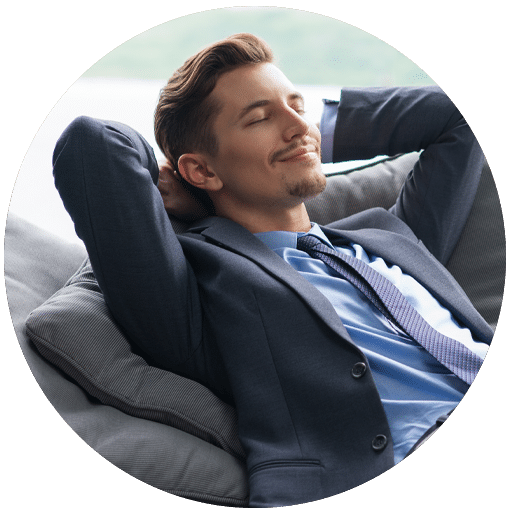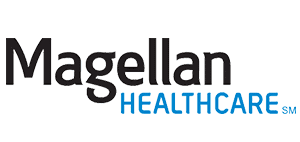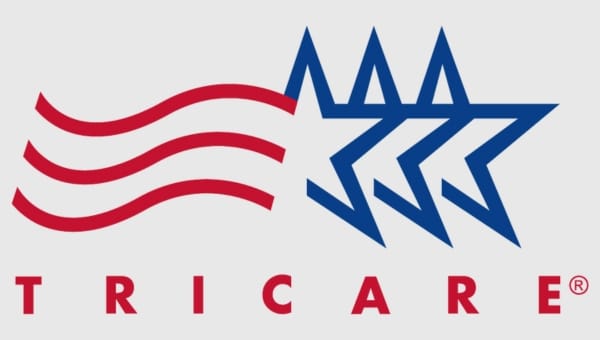Muscle relaxer addiction requires the skill and expertise of professional substance abuse disorder counselors to address. If you’ve become dependent on muscle relaxers, the team at Vogue Recovery Center is ready to help.
Muscle relaxers are a type of prescription drug used in medical settings and prescribed by doctors to calm or relax the central nervous system (CNS). The first drugs were developed in the 1940s. Since then, they have grown in popularity and prevalence and, unfortunately, become a problem for many people.
What Are Muscle Relaxers?
Muscle relaxers, also called muscle relaxants, are prescription drugs only available from licensed physicians. They help prevent muscle spasms, pain, and discomfort by producing a relaxing effect that releases tension and helps calm the CNS, promoting healing. They depress the CNS, limiting the transmission of pain signals between the spinal cord and the brain. This dampens the response from muscles, which reduces spasms and eases tightness. Muscle relaxants are often used to help treat low back pain or following surgery.
Some of the most popular muscle relaxers include:
- Soma (Carisoprodol)
- Flexeril (Cyclobenzaprine)
- Robaxin (Methocarbamol)
- Lioresal (Baclofen)
- Zanaflex (Tizanidine)
- BOTOX Cosmetic (Botulinum toxin)
Other muscle relaxers include:
- Alcuronium chloride (Alloferin)
- Chlorzoxazone (Parafon Forte DSC, Lorzone)
- Cisatracurium (Nimbex)
- Dantrolene (Dantrium, Revonto, Ryanodex)
- Orphenadrine (Norflex, Norgesic)
- Metaxalone (Skelaxin)
Muscle relaxers come in different forms, including pills, injections, and oral solutions. If you are eligible for muscle relaxants, your doctor will decide which specific medication, its form, and dosage are right for your unique situation.
What Are the Different Types of Muscle Relaxers?
Muscle relaxers, also known as muscle relaxants, are a commonly prescribed type of medication that is used to treat conditions such as muscle spasms and muscle stiffness. These drugs work by blocking nerve impulses to the muscles, causing them to relax and reduce pain.
There are several different types of muscle relaxers available on the market today, each with its unique properties and benefits. In general, there are two types of muscle relaxers prescribed by doctors:
Some of the most commonly prescribed types include:
- Antispastic muscle relaxers
- Antispasmodic muscle relaxers
Both of these types of muscle relaxers work to reduce muscle spasms, but they do so in different ways.
Antispastic Muscle Relaxers
Antispastic muscle relaxers are commonly prescribed for managing conditions like multiple sclerosis, cerebral palsy, and other disorders that result in involuntary muscle spasms and stiffness. These medications help by targeting the nerves in the spinal cord that regulate muscle movement, reducing excessive muscle contractions and improving mobility. By relieving muscle tightness and spasms, they can enhance comfort, increase range of motion, and improve the overall quality of life for individuals dealing with these challenging conditions.
Antispasmodic Muscle Relaxers
Antispasmodic muscle relaxers are commonly used to treat musculoskeletal conditions caused by tight or strained muscles, or muscle spasms. This medication is the most common muscle relaxer prescribed. It reduces muscle spasms and relieves pain by blocking nerve pathways in the nervous system that cause muscles to contract. This can reduce pain, increase relaxation, and improve function in people who suffer from muscle spasticity. This medication is often used as part of a treatment plan that involves rest and therapy to treat muscle spasms.
What Happens When You Take Muscle Relaxers?
The most common side effect of muscle relaxers is relaxation. These sedating medications prevent your nerves from sending signals to your brain that your body is in pain or discomfort. This can lead to feelings of drowsiness and fatigue. It’s not safe to drive a vehicle or operate any machinery while under the influence of muscle relaxants.
Muscle relaxers are not typically intended for long-term use, and it carries side effects, such as:
- Drowsiness
- Nausea
- Headaches
- Dizziness
Muscle relaxers can increase in intensity when combined with other substances such as alcohol. If you mix alcohol and muscle relaxers, the side effects include:
- Extreme fatigue
- Blurry vision
- Confusion
- Dizziness
- Organ damage
- An increased risk of overdose

Muscle relaxers can also interfere with other prescription drugs. It’s important to speak with your doctor about your medical history or any other medications you are taking before starting a course of muscle relaxants.
What Are the Signs of a Muscle Relaxant Overdose?
Muscle relaxers can be dangerous and carry a potential for overdose. Because people who take the drug build a tolerance over time, it opens the door for overdosing by accident. This is especially true for those who take muscle relaxants for recreational purposes or mix the drug with other substances like alcohol.
If you suspect someone you love is overdosing on muscle relaxants, here are some signs to look for:
- Fading in and out of consciousness
- Seizures
- Difficulty breathing
- Hallucinations
- Disassociation
- Confusion
Central nervous system depressants carry a potential for overdose and death, just like other prescription medications. If you’ve been using muscle relaxers for a long time, you may need a detox center to help with the withdrawal process.
Are Muscle Relaxers Addictive?
It is important to take muscle relaxers only as prescribed because they do carry a potential for addiction and abuse when misused or taken over a long period of time. Their relaxation and sedative effects give them a high potential for habitual use. Those who take central nervous system depressants can also build a tolerance to the drugs. This means they need a higher dose to feel the same effects, and it opens the door to overdosing on muscle relaxers or to using other substances like alcohol at the same time to get heightened effects.
If you stop taking muscle relaxers, you may experience withdrawal symptoms. The most common muscle relaxer withdrawal symptoms include:
- Anxiety
- Insomnia
- Restlessness
- Pain
- Discomfort
- Agitation
- Headaches
- Muscle spasms or tremors
Need Help For Muscle Relaxer Addiction?
Our admissions team is available around the clock to help you or a loved one get the help you need.
Signs of Muscle Relaxer Abuse
Muscle relaxers, also known as skeletal muscle relaxants, are a type of medication used to treat muscle spasms and stiffness. While they can be effective in providing relief for those with chronic pain or muscular conditions, they also carry a high risk for abuse and addiction.
Some common signs of muscle relaxer abuse include:
- Seeking Multiple Prescriptions: One of the first red flags of potential abuse is when a person begins seeking multiple prescriptions from different doctors or pharmacies. This behavior may indicate that the individual is trying to obtain more medication than prescribed in order to use it for non-medical purposes.
- Taking Higher Doses: Another sign of potential misuse is when an individual starts taking higher doses than prescribed. This can often lead to an increased tolerance and dependence on the medication.
- Mixing with Other Substances: People who abuse muscle relaxers may also mix them with other substances, such as alcohol or opioids, to enhance their effects. This can be extremely dangerous and increase the risk of overdose.
- Withdrawal Symptoms: If someone is addicted to muscle relaxers, they may experience withdrawal symptoms when trying to stop using them. These can include nausea, vomiting, tremors, and anxiety.
- Engaging in Risky Behaviors: Those who are addicted to muscle relaxers may engage in risky behaviors such as driving under the influence or stealing medication from others in order to obtain their desired dosage.
It’s important for anyone taking muscle relaxers to closely follow their doctor’s instructions and only take them as prescribed. It’s also important to keep track of any potential side effects and discuss them with a healthcare provider.
If you or someone you know is struggling with addiction to muscle relaxers, it’s important to seek help from a professional treatment center. At Vogue Recovery Center, we offer tailored treatment plans for individuals dealing with substance abuse issues. Our team of experienced professionals will work with you to address the underlying causes of addiction and develop a comprehensive approach to recovery.
Muscle Relaxer Addiction Treatment
Treating muscle relaxer addiction starts with contacting the team of clinical professionals at Vogue Recovery Center. We are a full-service addiction and mental health treatment center that can provide the proper healing program for your needs. Our approach to muscle relaxer treatment is integrated and comprehensive. We provide behavioral, research-based programs at our rehab facilities that can help you live life free from drug abuse.
Our unique levels of care for muscle relaxer addiction treatment can help you find a path to recovery that offers a real shot at sobriety. Our levels of care include:
- Medical detox: Drug detox is a crucial first step in the process of recovery. Detox is when you rid your body of all substances so you can begin healing. Withdrawal and detox can be dangerous, so it’s helpful to have professional substance abuse treatment counselors overseeing the process. They ensure comfort and safety while you detox from drugs and alcohol.
- Inpatient treatment: Residential treatment is a form of recovery that involves living full-time at a drug rehab center. You undergo treatment programs every day to overcome an addiction to prescription muscle relaxants. Therapies in inpatient addiction treatment include group and individual therapy, family therapy, cognitive behavioral therapy (CBT), and more.
- Partial hospitalization program (PHP): A PHP is a form of outpatient care that involves spending up to five days per week at a treatment center. While in treatment you can live at home or in a sober living center. The goal of a PHP is to begin the transition back to normal life.
- Intensive outpatient program (IOP): An IOP is a less intense outpatient program than a PHP that allows more flexibility in recovery. You attend treatment for between 9 and 15 hours per week while living at home and going to school or work. It’s another step towards returning to normal life.
- Outpatient program: Outpatient programs are designed to ease the transition back to normal life. The goal is to build on the skills and coping mechanisms you learned in recovery to avoid muscle relaxer abuse in the future.
If you’re ready to end an addiction to muscle relaxers, contact the team at Vogue Recovery Center today. Our substance abuse treatment programs can help prevent something terrible like a muscle relaxant overdose. Our admissions team is ready to verify your insurance and get you started with a treatment program that can help you overcome muscle relaxer addiction. Don’t let physical dependence on muscle relaxers control your life any longer.
Does Insurance Cover Muscle Relaxer Rehab
One of the most-asked questions when it comes to treating muscle relaxer addiction is whether or not insurance will cover the cost of treatment. If you’re wondering how to pay for rehab, the good news is that insurance can cover part or all of the cost of treatment. All insurance providers and policies are different, but a free insurance verification with the team at Vogue Recovery Center can offer more information about what treatment options for substance abuse and mental health issues you have available based on your policy.
Don’t hesitate to contact the admissions team at Vogue Recovery Center today and get started with your recovery journey! The treatments for muscle relaxer abuse at Vogue Recovery Center are safe and effective. Our team is waiting and ready to help you get better.
Finding Help for a Muscle Relaxer Addiction
If you’re battling addiction to muscle relaxers, know that recovery is within reach with the right support system. Proven treatment options like counseling, therapy, and self-help groups can equip you with the tools needed for lasting freedom from addiction. You don’t have to let alcohol or drug use control your life any longer.
At Vogue Recovery Center, we offer research-based treatments and personalized programs designed to help you reclaim your life. The dangers of muscle relaxant addiction are too serious to ignore. Contact us today—our team will assist with verifying your insurance and guide you in choosing the right drug rehab program for your needs. Take the first step toward a healthier, brighter future.
- https://www.mayoclinic.org/drugs-supplements/cyclobenzaprine-oral-route/description/drg-20063236
- https://my.clevelandclinic.org/health/treatments/24686-muscle-relaxers
- https://www.goodrx.com/classes/muscle-relaxants/best-muscle-relaxants-over-the-counter-prescription-medications#drowsiness
- https://www.justice.gov/archive/ndic/pubs10/10913/index.htm

Medically Reviewed by Jessica Elbe, LCSW











